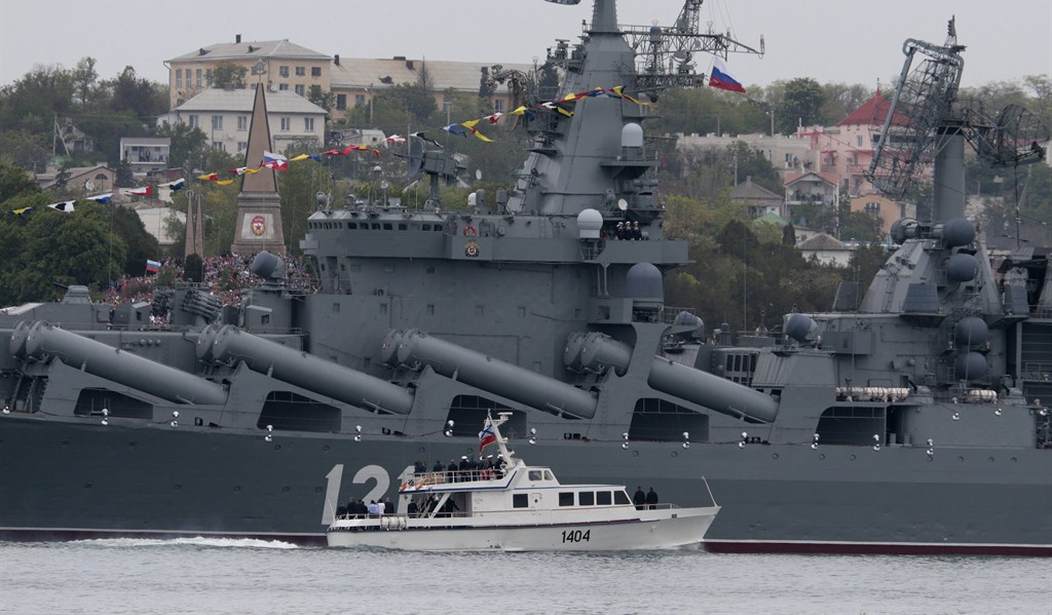With recent Russian advances in the Donbas region, many are becoming worried that Russia might actually be able to continue grinding on until they “win” Putin’s war and permanently annex more Ukrainian territory. But the other pressing matter that’s growing more urgent by the week is the blockade of Ukrainian grain and other agricultural produce, preventing the food from reaching the world market. This is being done by design, no matter what Vladimir Putin may say about it in public. Sierra Leone, South Sudan, and much of sub-Saharan Africa are already experiencing food emergencies. If this situation continues, it will prompt a fresh wave of migrants heading north to escape starvation. This will further destabilize the situation around the Mediterranean and across much of Europe, all to Russia’s benefit.
At the New York Post, Dalibor Rohac argues that there is a path out of this situation that could be implemented fairly quickly and potentially end Russia’s invasion once and for all. But it would require some specific, ramped-up help for Ukraine’s military and some bold action by the United States and NATO starting almost immediately. Rohac points out that the Ukrainians are quite capable of taking out Russian naval vessels if given the right sort of missiles and the support of American intelligence analysts. They already demonstrated this with the sinking of the Russian flagship Moskva. Given better missiles and a bit of training, Ukraine could effectively eliminate Russia’s Black Sea fleet. At the same time, having American and NATO naval units act as escorts to supply ships bringing Ukrainian grain overseas could stave off attacks by any remaining Russian warships in the region.
First and foremost, as the sinking of Russia’s Black Sea Fleet flagship, Moskva, illustrates, Ukrainians are perfectly capable of pushing back themselves if provided with the right equipment. Moskva was hit by a Ukrainian-made Neptune missile. With US intelligence and with higher-precision and longer-distance missiles, such as Danish Harpoons, Ukraine would be in a position to significantly cripple if not destroy the entire Black Sea Fleet.
The hesitancy to provide Ukrainians with such tools is completely misplaced. If anything, an even bolder step might be needed to end the blockage. A US-led naval coalition should assist with the demining of Odesa and escorting Ukrainian grain shipments out of Ukrainian ports. The United States undertook a similar task in the war between Iran and Iraq in the 1980s, when the US Navy accompanied Kuwaiti tankers out of the Persian Gulf, effectively deterring Iran from attacking.
This probably sounds like a far more aggressive stance than Joe Biden has taken thus far, but it certainly seems doable. With our help, the seas around Odessa could be cleared of mines fairly quickly. Danish harpoon missiles would allow the Ukrainians to begin damaging or simply sinking the Russian Black Sea fleet. If the blockade can be ended, the food crisis is significantly lessened and the Ukrainian position becomes stronger.
The idea of naval escorts may create some squeamish reactions in Washington and most European capitals, but the only thing that Vladimir Putin cares about is actual strength. As Rohac points out, this would not be the same as a no-fly zone over Ukraine where NATO pilots might have to shoot down Russian fighter jets. An American or NATO naval escort for Ukrainian cargo ships would put Russia in the position of having to decide if they would risk opening fire on such vessels. They would, in effect, be forced to “shoot first.” At that point, a member of NATO has been attacked and Article 5 kicks in. Putin surely realizes how badly this war is draining his forces and it seems impossible that would risk such an action.
If Russia’s Black Sea fleet is either neutralized or laying on the bottom of the ocean and nobody has attacked any Russian assets except Ukraine, this entire war could be turned around and it could happen by the end of the summer. Is this idea simply crazy or might it be worth the risk? Putin doesn’t appear to be any closer to listening to reason than he was when the invasion began. Perhaps a bold move is what’s called for now.









Join the conversation as a VIP Member